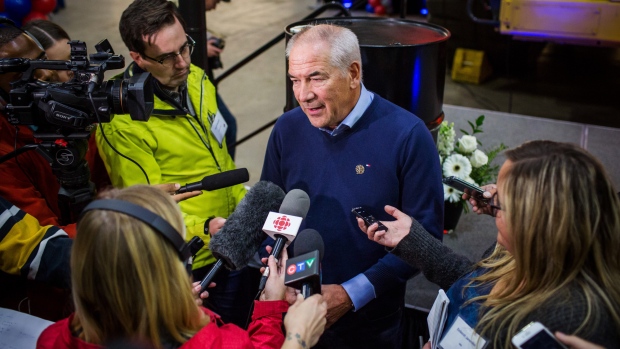Feb 6, 2019
Suncor CEO says he expects Alberta will end oil cuts early
, Bloomberg News

Suncor Energy Inc. (SU.TO) Chief Executive Officer Steve Williams said he expects Alberta’s mandated oil-production cuts to end earlier than planned after the program boosted heavy crude prices so much that it made purchases unprofitable for U.S. refiners.
Alberta’s curtailment program -- intended to clear space on the province’s limited pipelines and draw down a glut of oil that had built up in storage -- has meant it’s now uneconomic for U.S. refiners to buy crude from Alberta and foot the bill to move it via rail, he said.
“The rail economics are seriously damaged, and a lot of the rail movements are stopping or have stopped,” Williams said Wednesday on Suncor’s earnings conference call with analysts. “That’s going to have the opposite impact to what the government wants.”
Alberta has already reduced the curtailment by 75,000 barrels a day, and Williams said it’s time to start planning for a “soft exit” from the strategy to avoid more unintended consequences





